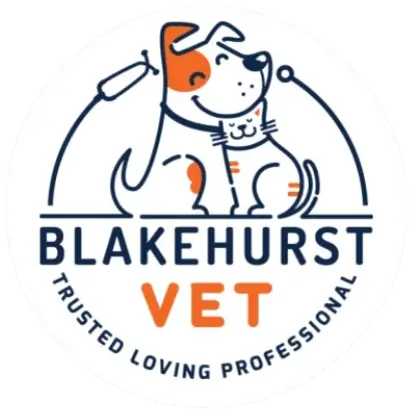Diet plays a crucial role in the health and wellbeing of our beloved pets, especially when it comes to dogs. With the growing popularity of grain-free diets for both humans and animals, many dog owners are wondering whether their furry friends should also follow this trend. This has sparked a heated debate among pet owners, veterinarians, and nutrition experts.
Proponents of grain-free diets claim that they can improve digestion, reduce allergies, and promote overall better health in dogs. On the other hand, sceptics argue that these diets lack scientific evidence and may even cause harm to our canine companions. As a result, deciding whether to feed your dog a grain-free diet can be confusing and overwhelming.
In this article, we will delve into the facts surrounding grain-free diets for dogs and help you make an informed decision about your furry friend’s nutrition.
What is a Grain-Free Diet?
A grain-free diet for dogs is a dietary plan that eliminates grains such as wheat, corn, rice, and barley from their meals. These diets typically consist of animal proteins like meat, poultry, and fish along with vegetables, fruits, and sometimes legumes.
Grains are often used in dog food as a source of carbohydrates. However, advocates of grain-free diets argue that dogs do not need these ingredients in their diet since they can get their energy from protein and fat sources. They believe that grains may cause digestive issues or allergies in some dogs due to their high carbohydrate content.
In recent years, grain-free diets have gained popularity among pet parents who seek natural and organic options for their furry companions. Many commercial dog food brands now offer grain-free options, and homemade recipes for grain-free dog food have become popular as well.
However, it is essential to note that not all grain-free diets are created equal. Some may still contain grains in the form of alternative sources such as potatoes or peas. Additionally, a grain-free diet does not necessarily mean a low-carb diet as some carbohydrate sources like sweet potatoes and lentils are still used.
Benefits of Grain-Free Diets for Dogs
Proponents of grain-free diets claim several benefits for dogs, including improved digestion, reduced allergies, and increased energy levels.
One of the main reasons why pet owners opt for grain-free diets is due to concerns about their dog’s digestive health. Grains can be difficult for dogs to digest, and some may experience bloating, gas, or diarrhoea after consuming them. Grain-free diets eliminate these ingredients, which can result in better digestion for some dogs.
Moreover, grains are known allergens for some dogs and may cause skin issues like itching and rashes. By eliminating grains from their diet, pet owners believe that they are reducing the risk of allergies in their canine companions. However, it is worth noting that food allergies in dogs are rare and often caused by proteins rather than carbohydrates.
Additionally, advocates of grain-free diets claim that these diets provide more energy for dogs due to the high protein and fat content. Dogs require a significant amount of protein in their diet to maintain muscle mass and stay active. Thus, proponents argue that grain-free diets are more suitable for the natural carnivorous nature of dogs and can help them thrive.
Signs Your Dog May Need a Grain-Free Diet

While grain-free diets may have their benefits, they are not suitable for every dog. It is essential to consult with your veterinarian before making any significant changes to your dog’s diet.
Some signs that your dog may need a grain-free diet include:
Skin allergies or irritations
As mentioned earlier, grains are known allergens for some dogs. If your dog is experiencing skin issues like itching, redness, or rashes, it could be a sign of a food allergy. Whole grains may not be the sole cause of these allergies, eliminating them from their diet may help alleviate symptoms.
However, it is crucial to determine the specific allergen through an elimination diet or allergy testing before jumping to conclusions about grains being the culprit. Other common food allergens for dogs include beef, chicken, dairy, and eggs.
Plus, environmental factors such as pollen and dust can also cause skin allergies in dogs. Therefore, it is essential to work with your veterinarian to determine the root cause of your dog’s skin issues before making any changes to their diet.
Digestive issues like bloating or diarrhoea
If your dog experiences frequent digestive issues like bloating, gas, or diarrhoea after consuming grains, it could be a sign that their body has difficulty digesting these ingredients. In such cases, switching to a grain-free diet may improve digestion and alleviate these symptoms.
However, it is crucial to note that digestive issues in dogs can have various underlying causes. It is best to consult with your veterinarian to rule out any medical conditions before changing your dog’s diet.
Low energy levels
Dogs require a significant amount of protein in their diet to maintain muscle mass and stay active. If your dog seems lethargic or has low energy levels, it could be a sign that they are not getting enough protein from their current diet.
Grain-free diets are typically higher in protein and fat compared to traditional diets that contain grains. Therefore, switching to a grain-free option may help increase your dog’s energy levels and overall vitality.
However, it is crucial to ensure that the lack of energy is not due to an underlying medical condition before making any changes to your dog’s diet. Consult with your veterinarian for proper diagnosis and treatment.
Dull coat and excessive shedding
A dog’s coat is an essential indicator of their overall health and well-being. If your dog’s coat appears dull and they are shedding excessively, it could be a sign that they are not getting the proper nutrition from their diet.
Grains may not provide the necessary nutrients for optimal skin and coat health, such as essential fatty acids and vitamins. Switching to a grain-free diet that is formulated with these nutrients may help improve your dog’s coat condition and reduce excessive shedding.
Moreover, grains can also cause inflammation in some dogs, which can affect their skin health. By eliminating grains from their diet, pet owners believe that they are reducing the risk of inflammatory skin conditions like eczema or dermatitis.
However, as with any dietary changes, it is crucial to consult with your veterinarian before switching to a grain-free diet. They can help determine if the dull coat and excessive shedding are due to nutritional deficiencies or other underlying factors that need medical attention.
So these are some common signs that your dog may need a grain-free diet. However, it is essential to remember that every dog is unique and may have different dietary needs. Consult with your veterinarian for personalised recommendations on the best diet for your furry friend.
How to Choose the Right Grain-Free Diet for Your Dog
With the increasing popularity of grain-free diets, there are now numerous options available in the market. However, not all grain-free diets are created equal, and it is crucial to choose the right one for your dog’s specific needs.
Here are some factors to consider when selecting a grain-free diet for your dog:
- Protein source: Dogs require a high amount of protein in their beg diets, and it is essential to ensure that the grain-free diet you choose provides this nutrient from quality sources like real meat or fish.
- Nutritional balance: A healthy diet should provide a balanced combination of protein, fats, carbohydrates, vitamins, and minerals. Look for grain-free diets that are formulated to meet your dog’s specific nutritional needs.
- Allergen-free: If your dog has known food allergies, make sure to select a grain-free diet that is free from those allergens.
- Life stage appropriateness: Dogs have different nutritional requirements depending on their age and life stage. Choose a grain-free diet that is suitable for your dog’s age and activity level.
- Brand reputation: It is essential to research the brand of the grain-free diet you are considering. Look for reputable brands with a history of producing high-quality, nutritious dog food.
- Consult with your veterinarian: Your veterinarian knows your dog’s medical history and can provide valuable insights on which type of grain-free diet would best suit their needs.
Remember to introduce any new diet gradually and monitor your dog’s reaction. If they experience any digestive issues or other adverse reactions, consult with your veterinarian for advice.
Contact Blakehurst Vet For Your Dog Grain-Free Diet Needs
If you have noticed signs that your dog may benefit from a grain-free diet, it is important to consult with your veterinarian for personalised recommendations. At Blakehurst Vet, we understand the importance of proper nutrition for your furry friend and are here to help you choose the right grain-free diet for them.
Our team of experienced veterinarians and nurses can guide you through factors to consider when selecting a grain-free diet, such as protein source, nutritional balance, allergen-free options, life stage appropriateness, and brand reputation. We also offer same-day appointments for urgent matters and have a spacious reception area to make visits stress-free for both dogs and cats.
At Blakehurst Vet, we go above and beyond in caring for your pet’s health and well-being.
Don’t hesitate to contact us at 9547 2750 or book an appointment online for personalised care and advice on your dog’s grain-free diet needs. Trust your furry friend with the loving experts at Blakehurst Vet – where every visit is tailored to meet your pet’s individual needs.
FAQs
Is grain free food necessary for all dogs?
Grain free food is not necessary for all dogs. Most dogs can digest grains without any issues. However, grain free dog foods can be beneficial for dogs with specific grain allergies or intolerances. Always consult with your vet to determine if your dog would benefit from a grain free diet.
What are the potential risks of feeding my dog grain free foods that include legume seeds?
Some grain free foods replace grains with legume seeds, which have been under scrutiny. The FDA is investigating a potential link between grain free diets that include legumes and an increased risk of canine dilated cardiomyopathy (DCM) in dogs. It’s important to ensure that your dog’s diet, whether grain free or not, includes all essential nutrients.
How do pet food companies ensure that grain free dog foods contain all essential nutrients?
Pet food companies formulate grain free dog foods to meet the nutritional levels established by the AAFCO Dog Food Nutrient Profiles. These foods are often supplemented with vitamins and minerals to ensure they provide all essential nutrients required for a dog’s health. Always look for an AAFCO statement on the packaging of dry dog food to ensure nutritional adequacy.
Should I consider grain free pet foods over traditional dog foods?
Whether to choose grain free pet foods over traditional dog foods depends on your dog’s specific health needs and any allergies or sensitivities they may have. Grain free diets are not inherently better but can be necessary for dogs with specific dietary restrictions. Consult with a veterinarian to make the best dietary choice for your dog’s health and well-being.
Conclusion
In conclusion, a grain-free diet may be beneficial for some dogs with various health issues. However, it is essential to consult with your veterinarian before making any significant changes to your dog’s diet. Additionally, choosing the right grain-free diet for your dog involves considering factors such as protein source, nutritional balance, allergen-free options, life stage appropriateness, and brand reputation.
At Blakehurst Vet, our team of experienced veterinarians and nurses can help guide you in selecting the best diet for your furry friend’s specific needs. Don’t hesitate to contact us at 9547 2750 or book an appointment online for personalised care and recommendations on your dog’s grain-free diet.
